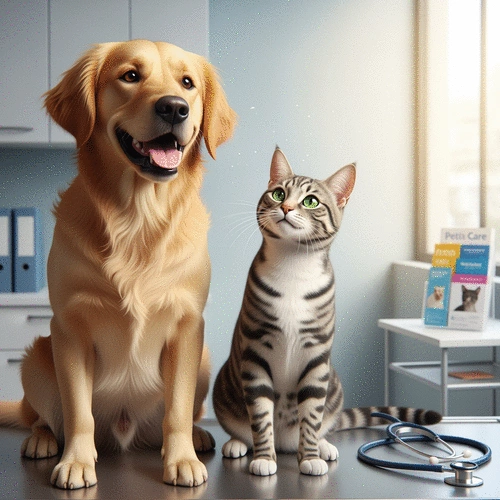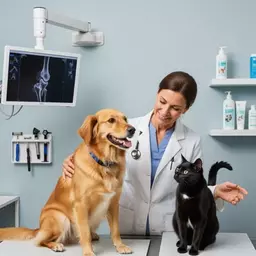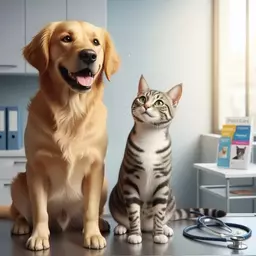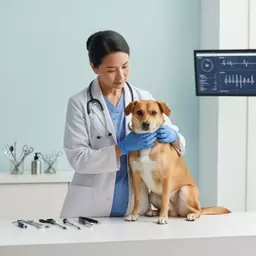Did you know that a proactive approach to pet wellness can significantly enhance your furry friend's quality of life? Understanding the essentials of pet wellness and preventive care is crucial for any responsible pet owner. Here’s what you’ll discover about keeping your pet healthy and happy!
What You Will Learn
- Pet wellness is a holistic approach that includes regular vet visits, nutrition, exercise, and mental stimulation.
- Routine care helps identify health issues early, making it easier to address them before they become serious.
- Preventive care measures, like vaccinations and parasite control, are essential for maintaining your pet's health.
- Understanding different care options empowers pet owners to make informed decisions that positively impact their pet's well-being.
Pet Wellness vs. Preventive Care: A Comparative Overview
This comparison highlights the distinct focuses and essential components of pet wellness and preventive care, offering a clear guide for pet owners. For a more detailed guide on creating a comprehensive health strategy, consider crafting your pet wellness plan.
Pet Wellness
A holistic approach ensuring happy, healthy lives through proactive care and regular evaluations.
- ✓Regular veterinary check-ups
- ✓Balanced nutrition
- ✓Consistent exercise
- ✓Mental stimulation
- ✓Routine dental care
Preventive Care
Stopping health problems before they start, ensuring a healthier future for your pet.
- ✓Regular health exams
- ✓Vaccinations
- ✓Parasite prevention
- ✓Nutritional guidance
- ✓Health screenings (blood tests, etc.)
Understanding Pet Wellness and Preventive Care
At VetInfo World, we believe that understanding pet wellness is essential for every pet owner. But what does pet wellness really entail? It's more than just regular visits to the vet; it's about ensuring that our furry friends lead happy, healthy lives through proactive care and regular evaluations. By grasping the core components of a wellness plan, you can make informed decisions that positively impact your pet's health!
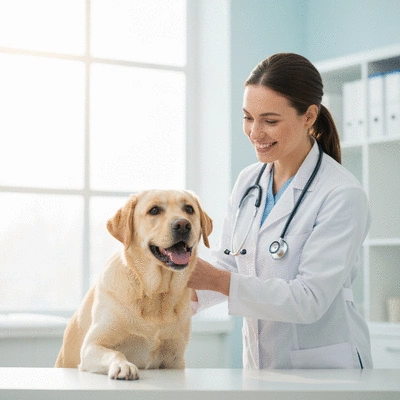
Defining Pet Wellness: What It Entails
Pet wellness encompasses a range of factors that contribute to an animal's overall health. These factors include regular veterinary visits, proper nutrition, exercise, and mental stimulation. It’s essential to view wellness as a holistic approach to your pet’s health, rather than merely responding to issues as they arise.
Core Components of a Pet Wellness Plan
- Regular veterinary check-ups
- Balanced nutrition tailored to your pet’s needs
- Consistent exercise and physical activity
- Mental engagement through play and training
- Routine dental care
By adhering to these components, you can create a comprehensive wellness plan that supports your pet's health throughout their life stages. I often remind pet owners that prevention is always better than cure!
Importance of Routine Care in Pet Health
Routine care plays a crucial role in identifying health issues before they become serious. Regular check-ups not only allow your veterinarian to monitor your pet's health but also enable them to recommend necessary adjustments in diet or exercise. Think of routine care as a proactive approach to keeping your pet's health in check!
Exploring Preventive Care: Key Features
Preventive care is all about stopping health problems before they start. By investing in preventive measures, you’re not just ensuring your pet feels good today, but also laying the groundwork for a healthier future. It’s like buying insurance for your pet's well-being! For more insights into how veterinary practices are evolving to meet these needs, explore veterinary medicine trends for 2025.
What Constitutes a Preventive Care Plan?
- Regular health exams to catch potential issues early
- Vaccinations to protect against common diseases
- Parasite prevention to keep your pet free of fleas, ticks, and worms
- Nutritional guidance to maintain a healthy weight
These essential elements of a preventive care plan make it easier for you to keep your pet healthy. At VetInfo World, we emphasize that a little bit of preventive care can go a long way in reducing health risks!
Essential Services Covered: Vaccinations, Exams, and More
Vaccinations, regular exams, and preventive treatments are the backbone of a good preventive care plan. These services ensure that your pet remains safe from various diseases and health issues. Did you know that certain vaccinations need to be updated annually? It's essential to stay informed about your pet's vaccination schedule!
Role of Health Screenings in Preventive Care
Health screenings are vital for early detection of potential health issues. These screenings can include blood tests, urine tests, and even X-rays, depending on your pet's age and health history. By incorporating these screenings into your pet's preventive care, you're one step closer to identifying issues before they escalate.
Understanding Parasite Control: Flea, Tick, and Heartworm Prevention
Parasite control is another crucial aspect of preventive care. Fleas, ticks, and heartworms can cause serious health problems for pets. Implementing a consistent parasite prevention plan not only protects your pet but also contributes to the overall wellness of your household.
Did You Know?
According to the American Veterinary Medical Association, pets that receive regular preventive care are 30% less likely to experience serious health issues throughout their lives. Investing in your pet's wellness today can lead to a healthier, happier tomorrow!
The Importance of Understanding Care Options for Pet Owners
As a pet owner, understanding the available care options is crucial for ensuring your furry friend lives a long, healthy life. At VetInfo World, I believe that when you know the differences between various care plans, you can make informed choices that positively impact your pet’s health. This knowledge empowers you and helps you advocate for your pet's needs!
So, why does knowing the differences matter? It’s simple: informed choices lead to better health outcomes. By understanding the nuances of pet wellness and preventive care, you can tailor a plan that suits your pet's unique needs. Don't you want to provide the best for your beloved companion?
Why Knowing the Differences Matters for Your Pet’s Health
It’s essential to empower pet owners so they can make informed choices about their pet’s health. A well-informed owner can recognize symptoms early, understand treatment options, and engage in preventive measures. This proactive approach can significantly enhance your pet’s quality of life!
- Recognizing early warning signs of illness
- Understanding the value of routine examinations
- Identifying the right vaccinations and preventive treatments
Integrating emotional and behavioral wellness into your pet's overall care is equally important. A happy pet is a healthy pet! By considering both physical and emotional aspects, you’re ensuring a well-rounded approach to their well-being.
Empowering Pet Owners: Making Informed Choices
As a veterinarian, I often see the impact that education has on pet ownership. When pet owners understand their options, they can actively participate in their pet's care journey. This empowerment leads to better health management and stronger bonds between pets and their owners!
Health literacy is a key component of responsible pet ownership. Knowing what to look for and understanding the significance of various treatments can help you navigate the complexities of pet care. Let’s explore how you can elevate your pet care game!

Next Steps: How to Choose the Best Care Plan
Choosing the right care plan for your pet doesn’t have to be overwhelming. Here’s a step-by-step guide to help you navigate this process:
- Assess your pet's current health status and needs.
- Research available care options, including wellness and preventive plans.
- Consult with your veterinarian to discuss your findings.
- Consider your budget and what services are most crucial for your pet.
- Make a decision and commit to regular check-ups!
Engaging with your veterinarian is a vital part of this process. Don’t hesitate to ask questions! It’s through these conversations that you can gain valuable insights into your pet's health needs, including understanding the benefits of veterinary diagnostic tools for early detection.
Engaging with Your Veterinarian: Questions to Ask
When meeting with your vet, here are some questions to consider asking:
- What specific preventive measures do you recommend for my pet’s age and breed?
- How often should we schedule wellness check-ups?
- What vaccinations are necessary, and why?
- Can you explain the benefits of health screenings?
Understanding the role of veterinary technicians in your pet's care is also essential. These professionals are vital team members in your pet's healthcare journey, assisting with examinations, treatments, and providing information about your pet’s needs.
By exploring the right care options and engaging with your veterinary team, you’re not just ensuring your pet's health; you’re fostering a lifelong partnership dedicated to your furry friend’s well-being. Let’s make every step count! 🌟
Frequently Asked Questions About Pet Wellness and Preventive Care
Here are some common questions pet owners have about maintaining their pets' health:
- What is the difference between pet wellness and preventive care?
- Pet wellness is a holistic approach to your pet's overall health, including nutrition, exercise, and mental stimulation, aimed at promoting a happy and healthy life. Preventive care, on the other hand, focuses on specific measures like vaccinations, parasite control, and regular health exams to stop health problems before they start.
- How often should my pet have a veterinary check-up?
- For most adult pets, an annual veterinary check-up is recommended. However, puppies, kittens, senior pets, or those with chronic conditions may require more frequent visits, as advised by your veterinarian.
- What are the core components of a pet wellness plan?
- A comprehensive pet wellness plan typically includes regular veterinary check-ups, balanced nutrition tailored to your pet’s needs, consistent exercise, mental engagement through play and training, and routine dental care.
- Why are vaccinations important for my pet?
- Vaccinations are crucial for protecting your pet from various infectious and potentially fatal diseases. They help strengthen your pet's immune system, preventing illnesses and contributing to public health by reducing the spread of zoonotic diseases.
- What kind of health screenings should my pet receive?
- Health screenings can vary based on your pet's age, breed, and health history. Common screenings include blood tests, urine tests, and fecal exams. For older pets, additional screenings like X-rays or more comprehensive blood panels might be recommended to detect age-related conditions early.
Recap of Key Points
Here is a quick recap of the important points discussed in the article:
- Pet wellness is a holistic approach that includes regular veterinary visits, proper nutrition, exercise, and mental stimulation.
- Core components of a wellness plan include routine check-ups, balanced nutrition, consistent exercise, mental engagement, and dental care.
- Preventive care helps catch health issues early and includes regular exams, vaccinations, and parasite prevention.
- Engaging with your veterinarian and understanding care options empowers pet owners to make informed choices for their pet’s health.
- Routine health screenings and parasite control are essential for maintaining your pet’s overall wellness and preventing serious health problems.

